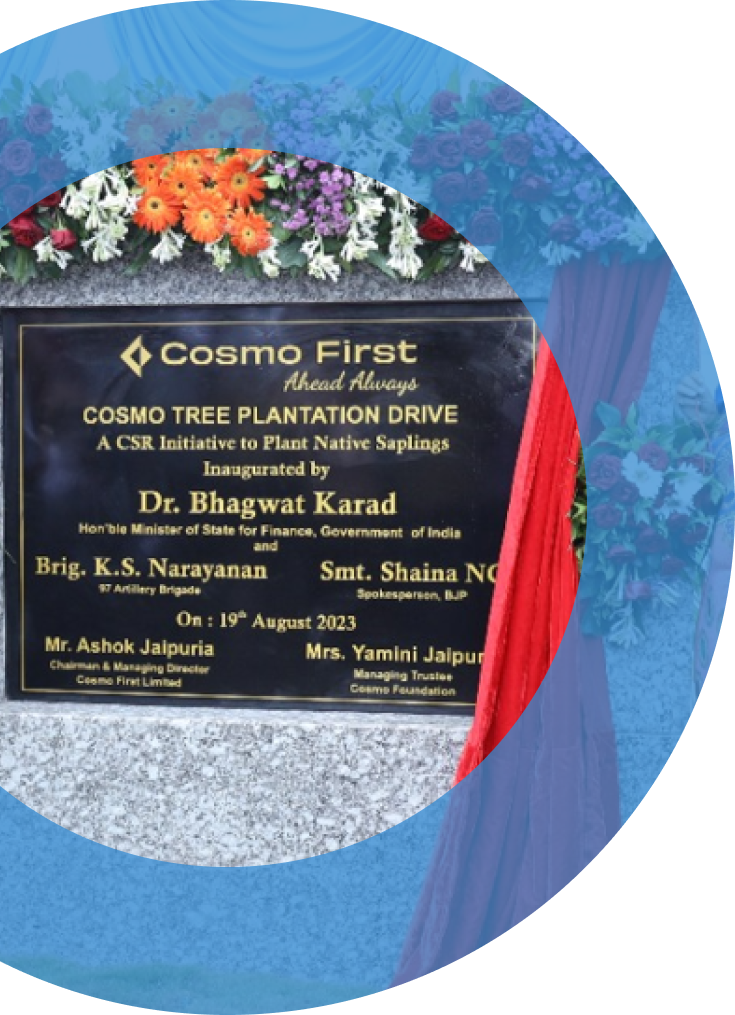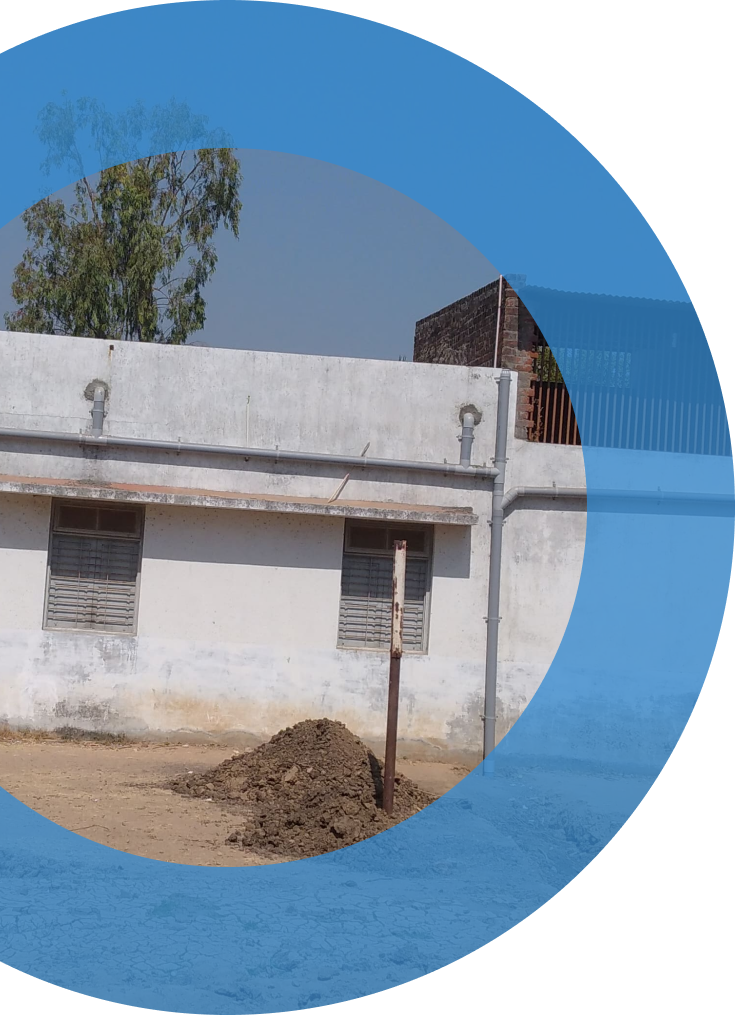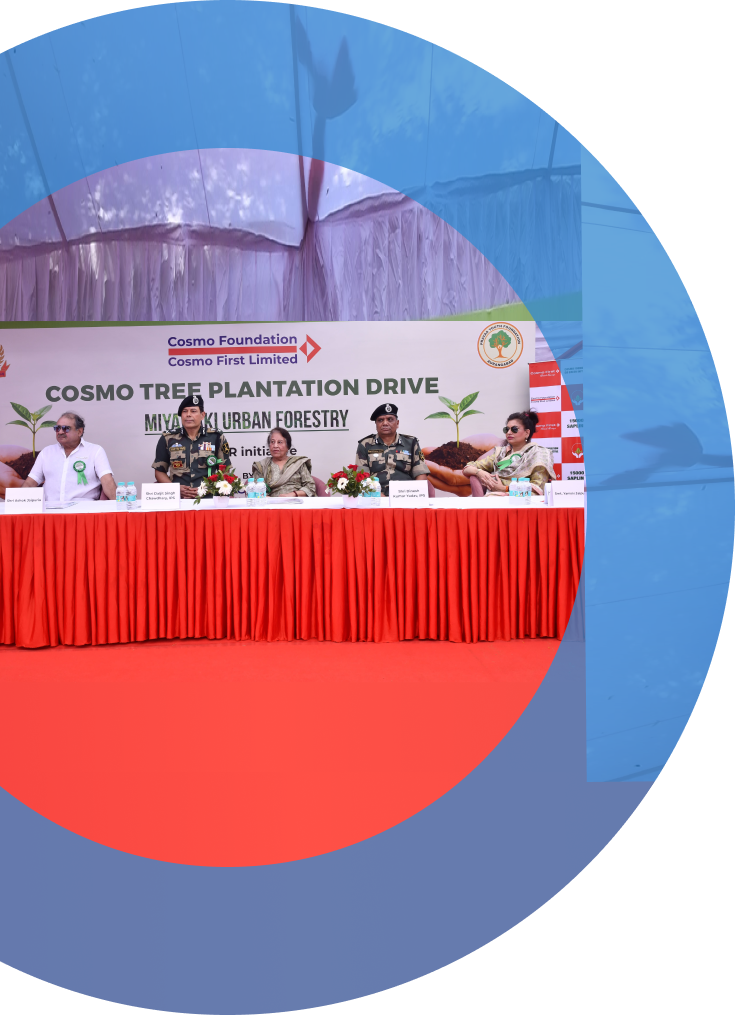Environment
Cosmo Foundation promotes cleanliness and a green environment through various initiatives. We partner with local farmers, schools, municipalities, and the Indian Army. Our goal aligns with the UN's Sustainable Development Goals and India's Swachh Bharat campaign. We focus on environmental sustainability, health, and hygiene awareness. Our programs have benefited communities across Karjan, Chhatrapati Sambhaji Nagar, and Delhi. We maintain public gardens, conduct plantation drives, and educate on waste disposal. Our initiatives promote biodiversity, water management, and reduce pollution. We aim to create a single use plastic-free, eco-friendly lifestyle. Students, parents, and communities participate in our awareness drives. Climate change is a pressing concern.
Farmers face soil erosion, water scarcity, and weather fluctuations. Food security is crucial for poverty alleviation. Cosmo Foundation promotes environmental sustainability and balance. We have launched Cosmo Tree Plantation Drive. Over 1,11,000 trees have been planted in three years. Our efforts cover 166 acres of land with greenery. We create opportunities for sustainable livelihoods for farmers. Our initiatives ensure food and nutrition security. By building awareness, promoting biodiversity, and empowering communities, we are paving the way for a sustainable and resilient future.
.png)
Agroforestry (Fruit Tree Plantation Drive)
Under this drive, farmers are being trained in sustainable farming practices and the social-economic viability of tree plantations. Most needy and marginalized farmers are selected and partnership is built for Fruit Tree Plantation across the rural belt of Gujarat and Maharashtra. Fruit Tree saplings are selected as per the local soil & climate and are planted in farmer’s land. The survival and growth of the saplings are constantly monitored and technical guidance for nurturing the fruit trees are provided by implementation partners and the Cosmo team. 40,000 fruit tree saplings across 19 villages, empowering 115 farmers with donation of saplings, skill trainings and livelihood enhancement under agroforestry
.png)
Miyawaki forest
Miyawaki forestry is a unique potential natural vegetation concept. The forests grow ten times faster, and are much more biodiverse, noise and dust-resistant, and have high carbon dioxide absorption capacity. At the Army Equestrian Centre- New Delhi planted 15000 saplings, At Ahwan entre – New Delhi planted 1000 saplings.

Bio Diversity Hub
Crucial to ecological stability, purification of air and water, fertility of soil, and more resilience to environmental changes such as climate change, pollution, and natural disasters, biodiversity hubs can work as green lungs in a rapidly urbanizing world. Cosmo Foundation set up one of the biggest biodiversity hub in collaboration with the Indian army by planting 40,000 native saplings.
.png)
Green and Clean Space Maintenance
CF has been taking the responsibility of maintenance and cleanliness of gardens under the Karjan highway flyover as well as Aurangabad airport since more than a decade with the objective of increasing the flora and fauna and providing green lungs amidst pollution in cities.
- Development and Maintenance of Public Garden
- Sun-Powered Paper mill at Kagzipura's Green Revolution

Water Conservation
- Safe Drinking Water Facility
Water is a basic need for every citizen and a scarce resource in drought-prone areas of Maharashtra, Cosmo Foundation in partnership with local govt schools constructed an underground water tank in six govt schools and overhead tank in Gangapur block of Chhatrapati Sambaji Nagar. It is useful to the schools for cooking Mid-Day meals in kitchen, drinking water, and maintaining toilets. Underground water tanks were also constructed in 2 rural govt. schools in Jabli Village with the support of Cosmo Ferrites and in Vidya School at Delhi.
- Rain Water Harvesting
Cosmo Foundation has undertaken a transformative project of rainwater harvesting in 11 rural Government schools of Karjan and Aurangabad. It has started making significant strides in reducing water stresses in the area and promoting environmental conservation by safeguarding groundwater from contamination.
.png)
Hygiene and Sanitation
Cosmo Foundation has been committed to addressing hygiene and sanitation issues in the community since its inception. Its role in preventing waterborne and infectious diseases, reducing malnutrition, promoting dignity, enhancing safety—especially for women—and improving girls' school attendance is well-researched and widely acknowledged. The Swachh Bharat Abhiyan and the call for Open Defecation-Free (ODF) villages by the Honorable Prime Minister in 2014 gave a significant boost to these efforts. CF constructed 200 toilets in rural government schools across Karjan and Gangapur and at Vidya School in Delhi. Additionally, massive behavior change programs were organized for children and the community to promote sustainable practices. The foundation also installed 500 waste bins in schools and villages, fostering cleaner environments.
.png)
Environment Awareness Program
We have conducted a range of awareness programs with children, women, and communities like nurturing trees, village cleanliness campaigns, the lean school campaigns, and was parties, energy audits, wall paintings, quizzes, poster competitions, leaning of ponds and riverbanks, waste bin maintenance, etc.

Ashwini Van - A Miyawaki Urban Forest Inaugurated at BSF Campus, Gurugram
On October 19th, 2024, commemorating the birth anniversary of the late Shri Ashwini Kumar, Padma Bhushan awardee and former Director of BSF, Ashwini Van, a Miyawaki Urban Forest, was inaugurated at the BSF campus in Bhondasi, Gurugram. This significant green initiative involved the plantation of 15,000 native saplings, reinforcing our commitment to environmental sustainability. This project was executed in technical partnership with Prayas Youth Foundation, employing the innovative Miyawaki method to create a dense and sustainable forest. Ashwini Van stands as a testament to our shared vision of nurturing green spaces and fostering biodiversity, contributing meaningfully to environmental conservation.
.jpg)